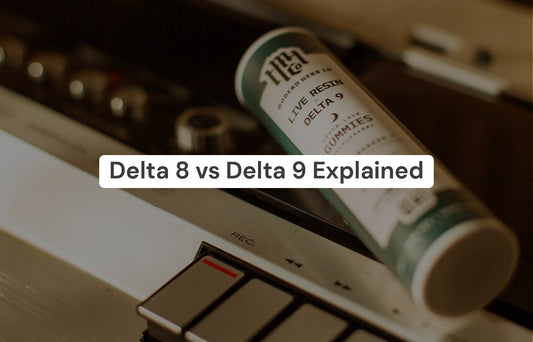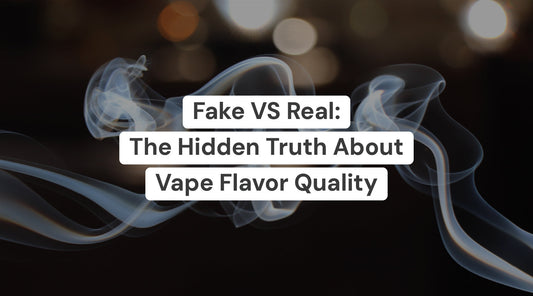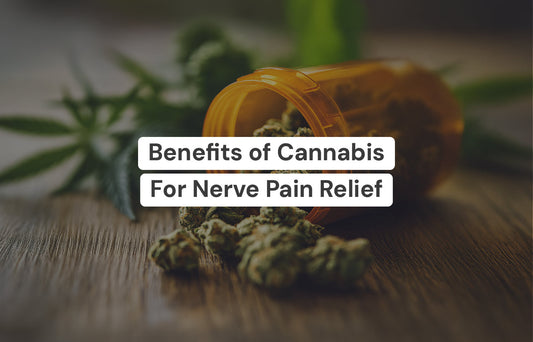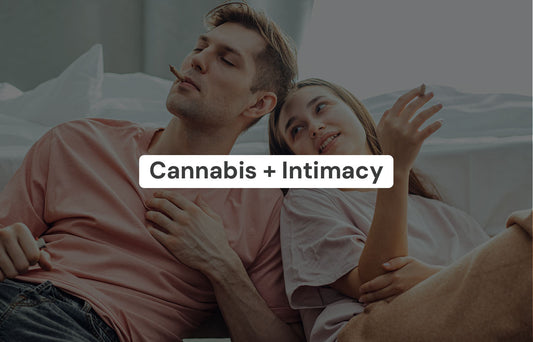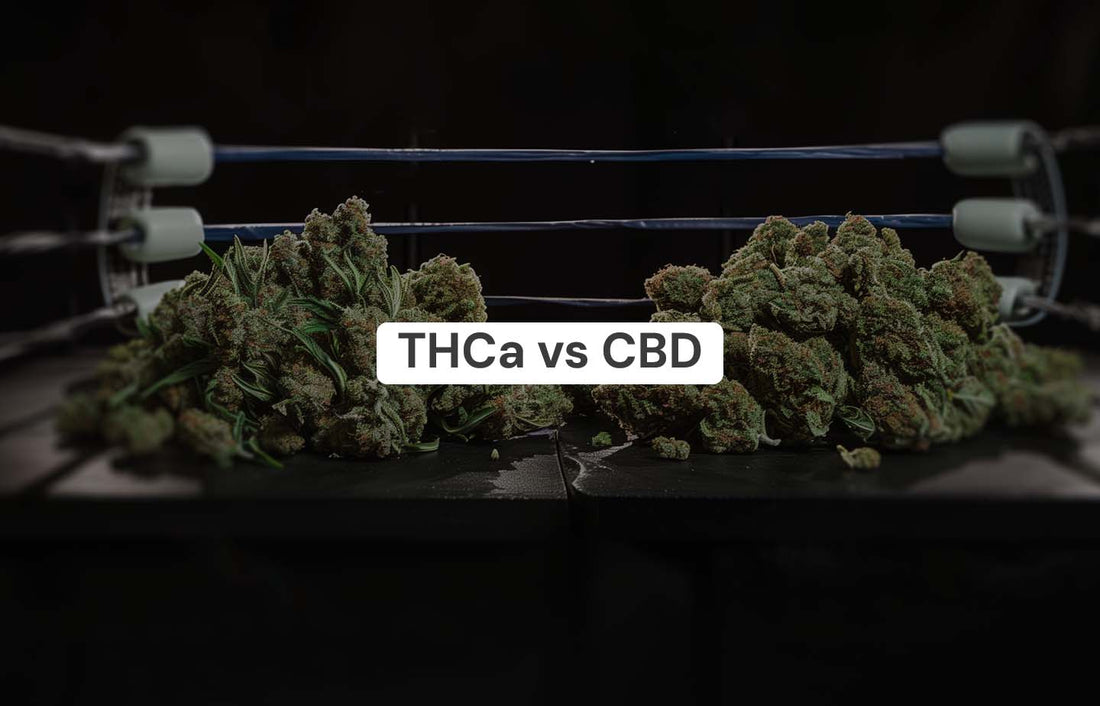
THCA vs CBD: Exploring the Differences
THCA vs CBD: While THC (tetrahydrocannabinol) is widely recognized as the primary psychoactive compound in marijuana, it's just one of over 100 different cannabinoids present in cannabis. Among these cannabinoids, CBD has emerged as a prominent player in the cannabis lifestyle. When compared to THC, CBD is not psychoactive, meaning it does not give the user a "high." This distinction has broadened the appeal of cannabis to individuals seeking its potential perks without the accompanying psychoactive effects.
Following the passage of the 2018 Farm Bill, which opened a legal loophole for cannabinoids, cannabis enthusiasts, researchers, and cultivators have tapped into the potential of various cannabinoids for diverse applications. Among these cannabinoids is THCA (tetrahydrocannabinolic acid), which shares similarities with CBD as a non-psychoactive compound, yet they possess distinct characteristics.
So, what sets CBD and THCA apart? When comparing THCA vs CBD, it's essential to understand the differences in their potential effects and perks for personalized lifestyle choices. Exploring the disparities and similarities between these two cannabinoids can help you make informed decisions about which one aligns best with your needs and preferences.
Table of content
Using CBD
Various THCA Products Various CBD Products Where To Buy THCA and CBD Products Online?
What Is THCA?
THC, which is an abbreviation for tetrahydrocannabinolic acid, is an essential component that may be found in freshly harvested cannabis flowers. The well-known psychoactive substance tetrahydrocannabinol, or THC, is widely used. The precursor to THC is THCA, sometimes known as THC's "mother cannabinoid." The psychoactive ingredient in cannabis, THC, is what gives users their euphoric feelings. This transition takes place as a result of the natural processes of aging and decarboxylation within the cannabis plant.
In the dynamic landscape of the cannabis industry, THCA has emerged as a versatile element that companies are harnessing in various innovative forms. Whether it is smoked in flower form, vaped as concentrates, incorporated into edibles, or savored as other types of THCA products, the applications of this non-psychoactive cannabinoid continue to expand.
As research and development progress, exploring the diverse potential advantages and applications of THCA remains a focal point for both scientific inquiry and product development within the field of cannabis. By delving deeper into the unique properties and interactions of THCA Products, we unveil a world of possibilities that may shape the future of cannabinoid-based applications and products.
What Are THCA's Advantages and Side Effects?
Tetrahydrocannabinolic acid, also known as THCA, is a cannabinoid that is found in cannabis and has gained an increasing amount of interest due to the possible impacts and advantages it may have. While it's important to note that research into THCA is ongoing and conclusive evidence is still emerging, some anecdotal reports suggest that THCA may offer certain effects and perks worth exploring further.
THCA is believed to possess properties that could potentially contribute to overall well-being, although the extent of its effects remains to be fully understood. To clarify the precise mechanisms of action and possible advantages connected to THCA usage, more investigation and scientific study are required.
While we cannot make specific health claims about THCA, anecdotal evidence, and ongoing research suggest that it may offer a range of effects and advantages that warrant consideration. As always, it's essential to consult with healthcare professionals and conduct thorough research before incorporating THCA or any cannabinoid into your wellness regimen. Please note that the FDA has not approved any cannabis products, and that includes THCA products as well.
Does THCA Make You Feel High?
No, using THCA unprocessed does not result in a high. Though it bears the name "THC," THCA is not a psychoactive form of cannabis. According to cannabis experts, the molecular structure of THCA prevents it from binding effectively to the brain's cannabinoid receptors, particularly the CB1 receptors responsible for producing psychoactive effects.
Key Points:
- Non-Psychoactive Nature: THCA lacks the psychoactive components necessary to produce a high, distinguishing it from THC. Consuming raw cannabis containing THCA will not result in intoxication.
- Decarboxylation Process: Through the application of heat, THCA is converted to THC. Only after this conversion can THC bind effectively to cannabinoid receptors and induce psychoactive effects.
- Unique Properties: Due to its distinct molecular structure and size, THCA does not interact with the body's cannabinoid receptors in a way that produces a high. This property sets it apart from THC, which binds readily to these receptors.
Overall, THCA does not have the capacity to make individuals feel high when used in its raw form. Because it is not psychoactive, it is a good choice for people who want the possible but not guaranteed perks of cannabis without getting wasted.
What Is CBD?
The abbreviation CBD stands for "cannabidiol." It is a particular kind of cannabinoid present in hemp and marijuana plants. CBD is not psychoactive like THC, which is another well-known cannabinoid. This indicates that it does not provide the same high as marijuana. Because of this, CBD is especially appealing to people who want the possible perks of weed without getting "high."
CBD works with the body through the endocannabinoid system, which is made up of many receptors in the immune and nervous systems. These receptors are primed to engage with cannabinoids, including CBD, influencing various physiological processes.
Whether smoked or ingested, CBD enters the bloodstream and travels through the endocannabinoid system, engaging with cannabinoid receptors scattered throughout the body. The various effects and possible advantages linked to CBD use are facilitated by this interaction.
As highlighted in studies conducted by Harvard Health, CBD is a significant component of medical marijuana, sourced either directly from the hemp plant or produced synthetically in a laboratory setting. Despite being one of many compounds in cannabis, CBD does not induce intoxication on its own. Additionally, findings from the World Health Organization indicate that CBD lacks the potential for abuse or dependence and is not associated with any significant public health-related concerns.
What Perks and Effects Does CBD Offer?
CBD, or cannabidiol, is celebrated for its diverse array of effects and potential perks, although it's essential to note that claims regarding its specific health effects should be approached with caution. Anecdotal evidence and early research indicate that CBD may offer a variety of potential effects and perks worth investigating further, even though research into CBD's effects is still ongoing.
Although the exact mechanisms of CBD's purported effects are still being investigated, it is possible that the compound interacts with the body's endocannabinoid system. Some individuals report experiencing feelings of relaxation or calmness after consuming CBD, while others suggest it may support overall well-being in various ways.
Individual responses may differ, so it is important to use caution when interpreting claims regarding the effects and perks of CBD. In order to completely comprehend the range of possible effects and perks of CBD, more investigation and scientific study are required.
Before incorporating CBD into their wellness routines, people should, as always, speak with healthcare professionals and do extensive research.
What Does CBD Feel Like?
CBD, or cannabidiol, does not produce a "high" sensation like THC. CBD reportedly does not produce any of the euphoric or intoxicating effects that are frequently connected to cannabis use because it is not psychoactive. Instead, individuals often report feelings of support for certain issues when using CBD for lifestyle purposes. Users also reported that they can enjoy the potential perks of CBD without experiencing any changes in their cognitive state because it does not have any psychoactive effects. For individuals looking for possible perks without getting "high," this distinction makes CBD an enticing alternative.
What Is The Difference Between CBD and THCA?
While CBD vs THCa may appear similar at first glance, a closer examination reveals stark differences between these two cannabinoid molecules. The main difference between the two is where they come from: hemp is a type of cannabis that contains low amounts of THC (tetrahydrocannabinol), the psychoactive ingredient that gives marijuana its desired effects. CBD is mostly found in hemp. In contrast, THCa is primarily abundant in unheated, raw cannabis.
A further feature that differentiates these cannabinoids from one another is the manner in which they interact with the endocannabinoid system (ECS). CBD reportedly engages with ECS by binding to CB1 receptors without fully activating them, thereby avoiding the creation of a psychoactive "high." Conversely, THCa's molecular structure prevents it from effectively binding to ECS receptors, resulting in the potential absence of psychoactive or intoxicating effects.
How To Use CBD and THCA?
Using THCA
- Vaping: Vaping THCA is a popular method, offering a similar experience to THC vapes without the psychoactive effects. THCA vapes come in various forms, providing flexibility in usage.
- Edibles: Incorporating THCA into edibles can be done without heat for non-intoxicating effects.
- Smoking: Smoking THCA involves heating the compound, converting it to THC, and potentially inducing psychoactive effects. This method is common but may alter the compound's properties.
- Dabbing: Dabbing THCA diamonds allows for direct usage of high concentrations of THCA. This method involves heating the crystals and inhaling the vapor produced.
Using CBD
- Tinctures: CBD tinctures offer a convenient sublingual administration method.
- Edibles: CBD-infused edibles provide a discreet way to use the cannabinoid.
- Topicals: For localized areas of the body, apply CBD lotions and creams directly to the skin.
- Capsules: Encapsulated CBD Products offer precise dosing for consistent usage.
When using either CBD or THCA, it is essential to consider individual preferences, desired effects, and the method of usage that best suits your needs. Experimenting with different methods can help you determine what works best for you while considering the unique properties of each cannabinoid.
Various THCA Products
You may find THCA Carts, THCA Flower, THCA Pre-Rolls, and THCA Concentrates, among other THCA items, on the internet. Users looking for the potential perks of THCA have options with these products that suit diverse preferences and intake techniques. The term "THCA Flower" refers to raw cannabis buds that do not result in intoxication but have a high tetrahydrocannabinolic acid content. THCA Vapes offer convenience and ease of use, while THCA concentrates provide high concentrations of THCA for potent effects. These products are designed to meet the diverse needs of individuals looking to incorporate THCA into their wellness routines.
Various CBD Products
There are a variety of CBD products available online, including CBD Gummies, CBD Edibles, CBD Disposable Vape, CBD Isolate, CBD Kief, CBD Live Resin, CBD Flower, CBD Distillate, CBD Vape Carts, CBD Tinctures, CBD Softgels, CBD Dabs, and CBD Pre-rolls. These products give users looking to reap the potential perks of CBD options by accommodating a range of tastes and usage styles. Whether you prefer the convenience of edibles or the fast-acting effects of vaping, there is a wide range of CBD products to suit your needs. We at The Hemp Collect offer a selection of high-quality CBD products designed to meet various lifestyle goals and preferences.
Where To Buy THCA and CBD Products Online?
If you are looking for high-quality THCA or CBD products online, consider purchasing from us at The Hemp Collect. At The Hemp Collect, we offer a wide range of CBD and cannabinoid products that undergo third-party lab testing for quality assurance. A certificate of analysis (COA) is included with every product to guarantee transparency and the purity of our products. You can explore our selection of THCA products, including THCA Flower, Pre-Rolls, and Concentrates. Visit our website to discover our premium products and choose your favorite strain from our THCA collection today.
Do you have more questions related to THCA vs CBD? Here are a few THCA & CBD-related articles. Want to learn more? Visit our blog section or contact us via email at wholesale@thehempcollect.com, or you can call us at +1.503.438.6783 to clarify your doubts. Help is available from our knowledgeable support staff.

About Ashley Dellinger
Ashley Dellinger is a trailblazer in the cannabis and hemp sectors, serving as the Director of Innovation at The Hemp Collect. With a keen visionary mindset, she not only propels advancements in these industries but also showcases her versatility as a seasoned professional writer based in Oregon. As a collaborative force, Ashley works alongside leading brands, processors, and retailers to elevate industry standards. Ashley Dellinger's work not only sets new benchmarks but also inspires others to pursue excellence. For a closer look into her insights and experiences, connect with Ashley on LinkedIn, Instagram, and Facebook.

